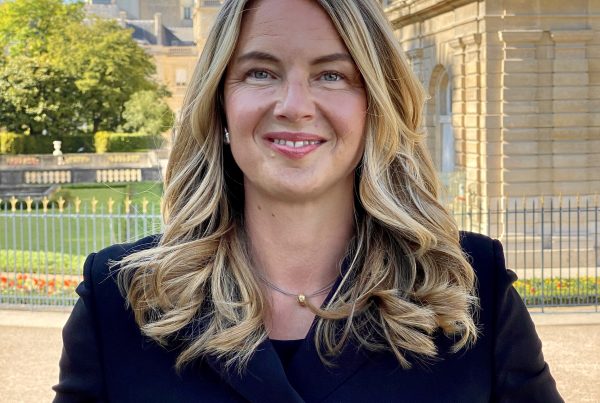Summer is here and we are soon off to some well-deserved recovery & relaxation time to take care of family, friends, and ourselves… everybody pursues different intentions and the fulfillment of needs. Personally, I will take time to focus on completing a body of work I began as a Rockefeller Foundation Fellow.
It is almost ten years ago that I spent a month as a resident fellow at the Rockefeller Foundation’s Bellagio Center in Italy. The world was much more peaceful at that time and “major” news circled around for example license plates and the reorganization of counties in Germany instead of the delivery of arms, human tragedy, and pandemic recovery. Those four weeks without a TV and imminent access to the outside world were a once-in-a-lifetime experience. In many ways it changed my life forever.
Since 1959 the Rockefeller Foundation Bellagio Center has hosted artists, policymakers, scholars, authors, practitioners, and scientists from all over the world enabling them time and space to work, to learn from each other, and to turn ideas into actions that change the world. I spent these formative and secluded weeks focusing on (taking) care – writing up my own story and “tales of management and medicine”, focusing on the human side of healthcare systems. What strikes me while I’m rereading my notes from Bellagio is that we seem to have made little progress over the last ten years in cherishing the human(istic) element of healthcare while medical technology and science have advanced considerably.
The “medical revolution” started about a hundred years ago when Alexander Fleming discovered penicillin in 1928. Major scientific innovations such as safe vaccinations which saved more lives than any other innovation in medical history followed in the subsequent decades, and the philosophy of medicine gradually shifted towards the purpose of “cure” (whereas previously health systems were focused on “care” and isolating sick patients to prevent the spread of diseases which were mostly eradicated in the last century due to the above-mentioned innovations). Because of the medical revolution (and then evolution) doctors prescribe drugs to cure symptoms and hospitals intervene to treat (and hopefully cure) the acutely ill patient.
However, healthcare nowadays is increasingly about caring, and substantially less so about curing. An ageing population paired with multiple chronic diseases has turned the classical “one-shot” acute patient for which today’s hospitals were designed into a “subscriber” who requires ongoing care and will most likely not be cured entirely. This patient also requires more communication, interaction, care management and many other non-billable activities that most health systems are not designed for and only sluggish to adopt.
Interestingly, medicine’s focus on “curing” is like management’s approach to set objectives, implement, control, and measure the accomplishment in terms of “performance”. In this way, “healthcure” and management are the “perfect match”. However, if we intend to manage “healthcare”, this fruitful liaison begins to fall apart and we must acknowledge that the mission to cure cannot always be accomplished – in fact, most of the time, the result of medical care cannot be measured easily, but it is an ongoing process of caring that is carried out by people.
On June 29, 2022, I had the great pleasure to collaborate with the Commonwealth Fund New York and the Health Foundation UK on the International Forum in Paris. A couple of key learnings emerged from the discussion that point to the urgency of the topic and resonate with our “critical care” discussions on June 16 in Paris:
- We do not have enough people to provide necessary health CARE; we will have even fewer healthcare professionals as they exit the workforce; and we have no idea/plan/strategy how to fill the widening supply-demand-gap. The belief that technology will mitigate the issue is a fallacy.
- We are not providing an appealing perspective to the next generation of healthcare professionals – many career beginners are even encouraged by their friends & families to rethink their interest and choices as the profession does not seem attractive enough.
- We believe that pushing content and engaging more/better healthcare managers to “manage the issue actively” can do the job because unifying regulations on the political level will be unlikely and time-consuming. And a solution is needed rather quickly/now. But how?
The essential existence of people as care providers has not been recognized sufficiently by management and medicine because it was – and still is – much easier to deal with redesigning organizations in which people work and adding technological solutions (which certainly have their added value but do not solve the key issue above). It is also because budget planning and the discussion around healthcare expenditures determine the thinking on both the macro and micro levels. Money flows easily when reputation is high, transparency is low, but “something” can be measured.
Approaches to medical error management, standard operating procedures – just to name a few – follow these “measurable” management principles that have been introduced by Frederick Taylor more than a century ago. His “principles of scientific management” were, however, designed to optimize factory work that could be defined, split in individual tasks, and easily monitored. Certainly, there exist elements of medicine that are easy to define, and that can be standardized, optimized, and controlled. Taylorism provided easy answers to manage factory work. The “problem” (and the advantage) is that medical work is carried out by people and that providing health care is – in many instances – not comparable to factory work. Therefore, the human side of healthcare systems is essential as Douglas McGregor stated already in 1960.
Management and medicine seem to be stuck in the age of modernistic approaches which have been fueled by the medical revolution and the desire to simplify and standardize operations. However, a postmodernist approach will be essential to address the human resources challenges global healthcare systems are facing. Healthcare must develop strategies to recruit and manage people – or rather professionals – who provide care and who are experts in their field. Experimenting solely with managing peoples’ performance in work processes is necessary, but insufficient. We must have the courage to give up the mythos that everything can be quantified and controlled as Matthew Stewart postulated in his book the “management myth” and rediscover people’s stories and intrinsic motivations.
To improve healthcare system performance in a post-pandemic world we must address the human element of healthcare urgently and therefore we have launched a project to evaluate the following essential factors and help organizations and systems to better address them:
- Listen to healthcare professionals in-person to understand burn-out and exit from the profession. Why are people leaving and where are they going? Which healthcare professionals are predominantly leaving?
- Better understand the underlying needs of professionals’ motivations and how these could be rediscovered and mobilized. Why did professionals choose the profession in the first place? How can we address emotions in organizations such as fear?
- Cultivate the professional culture by clearly defining roles, norms, and values. How can we reinvent the image/branding to make the healthcare profession attractive for the next generation?
If you or your organization would like to be part of this global initiative, please email me at your earliest convenience.
This proceeding might, in the end, not only increase the pool of available and motivated healthcare professionals but also save organizations and healthcare systems resources because if we understand what makes professionals “tick” we can respond with good reason and design appealing packages. This is crucial because the competition for the future workforce will be fierce.
The more general question “to cure or to care – why are we here?” goes beyond healthcare and is very much determined by societies’ community interaction. I elaborated on the search for “quick fixes” in previous perspectives, especially as people aim at getting back to a certain way of “normal” life in the post-pandemic era. The pandemic has been and still is a terrible human drama but at the same time an opportunity for management because necessary change became more easily possible. In the same way as it applies to medicine, management also must address the human(istic) approach that carries us into the future: show leadership; make the workforce feel safe, appreciated, recognized, and part of the community; and empower people. Inclusion and diversity will be key in this strategy as well as communication – using simple messages and every form of media. We must make staff well-being a priority to obtain buy-in and a lasting effect… IF WE CARE!
On a more personal and micro perspective we can also adopt a caring attitude and I’d like to invite you to read and reflect on David Foster Wallace’s “This is water” (see my recommended summer reads below) who reasons in his commencement speech that real freedom does not necessarily imply the pursuit of individualistic happiness which could be considered a deterministic and “curative” approach that relies on instant gratification and quick fixes. Instead, he postulates that “the really important kind of freedom involves attention, and awareness, and discipline, and effort, and being able truly to care about other people and to sacrifice for them, over and over, in myriad petty little unsexy ways, every day”.
Wishing you a lovely summer! Take good care of yourself and the world around you. Stay tuned for any update @KatharinaJanus!

Prof. Dr. Katharina Janus
CEO and Founder of the Center for Healthcare Management, Paris, France
President and CEO, ENJOY STRATEGY, Europe & US
https://katharinajanus.com
Summer reads – fresh from my travel bag – ENJOY!
- “This is water” by David Foster Wallace: You get to decide how you are going to see your environment; useful also as a meditation in your next airport queue!
- “The overstory” by Richard Powers: environmental fiction with a deeper sense of activism and resistance; for tree aficionados.
- “L’usage du monde” by Nicolas Bouvier: “the” travel book before Instagram; open eyes, true discoveries, and a sharp pencil.
- “Apprendre a voir: le point de vue du vivant” by Estelle Zhong-Mengual: learn to “see” all over again; rich body of work with many intriguing details on the world around us if we dare to look at it unfiltered.
- “The philosophy of care” by Boris Groys: on the topic of this perspective; “care” and its multifaceted dimensions (from authentic solidarity to devious manipulations and New Age spiritualist self-care) nicely embedded in the history of philosophy.

![[PERSPECTIVE by @katharinajanus] ON CARE](https://katharinajanus.com/wp-content/uploads/2020/06/IMG_7809-scaled.jpg)

